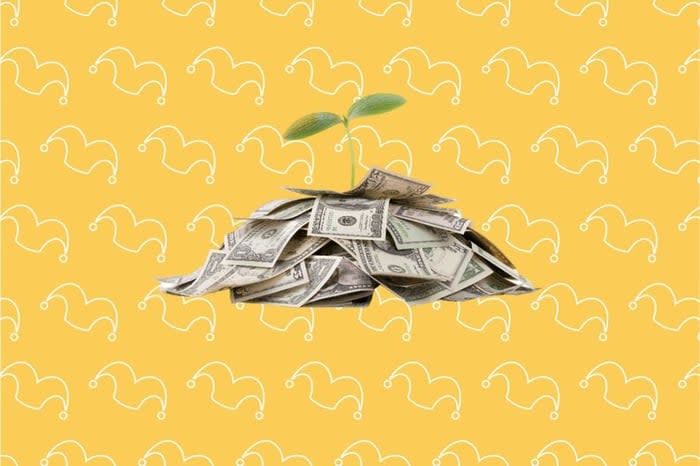How the Average American Can Turn Their Tax Refund Into $129,000

Image source: The Motley Fool/Upsplash
At this point, the 2024 tax season is thankfully in many people's rearview mirrors. And hopefully, you've either gotten your tax refund already or are expecting it to arrive any day now.
As of early May, the average tax refund issued this year was $2,864. That number could still change as late tax returns trickle in, or as people who requested extensions submit their documentation. But all told, the typical refund recipient today is looking at a pretty large sum of money.
Read more: unlock best-in-class perks with one of these brokerage accounts
If you're due a refund, you may be inclined to spend that money on something fun. But here's why investing it could be a much better bet.
Set yourself up with a ton of money
You may be inclined to put your tax refund into a savings account or certificate of deposit (CD), since rates for these products are very favorable right now. That's not a bad plan if you need money for an emergency fund or if you're saving up for a short-term goal. But otherwise, investing your tax refund really makes the most sense.
Over the past 50 years, the stock market has delivered an average annual return of 10%. That accounts for years of solid performance as well as extended slumps. If you put a $2,864 refund into the stock market today and leave that money alone for the next 40 years, you could end up with more than $129,000 to your name. That's a gain of roughly $126,000 without having to lift a finger.
If you're new to investing, you may be thinking, "How am I going to put together a portfolio of stocks that gives me a 10% return?" Good news -- you don't have to. If buying stocks individually is outside your comfort zone, you can buy shares of an S&P 500 ETF, or exchange-traded fund, instead. That basically means you're investing in the broad stock market without having to choose certain stocks over others.
READ MORE: Best ETF Brokers
Make sure your near-term needs are taken care of first
Investing your tax refund in stocks could make you very wealthy over time. But before you put that refund into stocks, make certain you're all set as far as your near-term needs go.
If you don't have enough money in emergency savings to cover three months of essential bills in the event of a layoff, then you should put your refund into the bank instead of investing it. That way, you won't be forced into immediate debt should you lose your job or encounter some unplanned expenses your regular paycheck can't cover.
Similarly, let's say you have a $2,800 credit card balance hanging over your head with a whopping 24% APY attached to it. For each day you carry that balance forward, you're racking up more interest. So if you have a $2,864 refund coming your way, you can wipe out that balance and spare yourself the cost and stress of continuing to have interest accrue.
It's easy to see why you may be inclined to spend your tax refund on something fun. But if you're set with emergency savings and don't have high-interest debt in your name, then your best bet is probably to invest that money and enjoy a massive payday down the road.
Alert: highest cash back card we've seen now has 0% intro APR until 2025
This credit card is not just good – it's so exceptional that our experts use it personally. It features a 0% intro APR for 15 months, a cash back rate of up to 5%, and all somehow for no annual fee!
Click here to read our full review for free and apply in just 2 minutes.
We're firm believers in the Golden Rule, which is why editorial opinions are ours alone and have not been previously reviewed, approved, or endorsed by included advertisers. The Ascent does not cover all offers on the market. Editorial content from The Ascent is separate from The Motley Fool editorial content and is created by a different analyst team.The Motley Fool has a disclosure policy.
